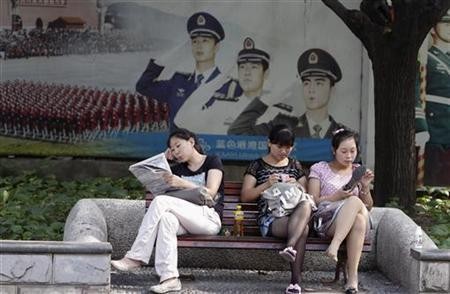The United Nations-backed gender equality campaign “HeForShe” was recently launched in China, with about 100 Tsinghua University students signing their pledge.
"While the pledge is symbolic, we are asking for specific action that contributes to social change. We are asking those who sign up to define what they will do to make a difference," U.N. Women Asia Pacific Regional Director Roberta Clarke remarked during the Sunday event, which was also attended by non-students.
Clarke also stressed specifically China's gender equality problem, which is its household heads' preference for sons. The issue has resulted in a skewed sex ration in the country.
Long Yifan, a 23-year-old Tsinghua graduate student, echoed the sentiment, stating that "girls and women are still disadvantaged in China," particularly in the job market.
In such market, Clarke pointed out that employers tend to demean females, assuming that they will marry, get pregnant and the result is to either spend a huge amount of time taking care for their children or quit from the workforce.
"Many of my female classmates have performed outstandingly in their studies, and if given the same chance, they could do much better than men," Long stated.
Meanwhile, 23-year-old economics major student Yuan Bo shared: "When I become a husband, I will never let my wife give up her own career for housework. When I become a father, I will respect my daughter's personal choice."
Shi Zhongqin, manager of Proya Cosmetics Corporation, made a vow that his company is building toilets with women's to men's cubicles' ratio of 3:1. His goal is to address the long lines piled up at women's restrooms.
"HeForShe" is mainly targeting the male gender, "engaging [them] in removing the social and cultural barriers that prevent [the opposite gender] from achieving their full potential."
Hollywood actress Emma Watson, who backs the campaign, claims that she has received a number of gender equality commitments from hundred thousands of men around the world since the advocacy was released in September.
Watson said that those who sent their pledges include heads of state, chief executive officers, and other global luminaries.



























